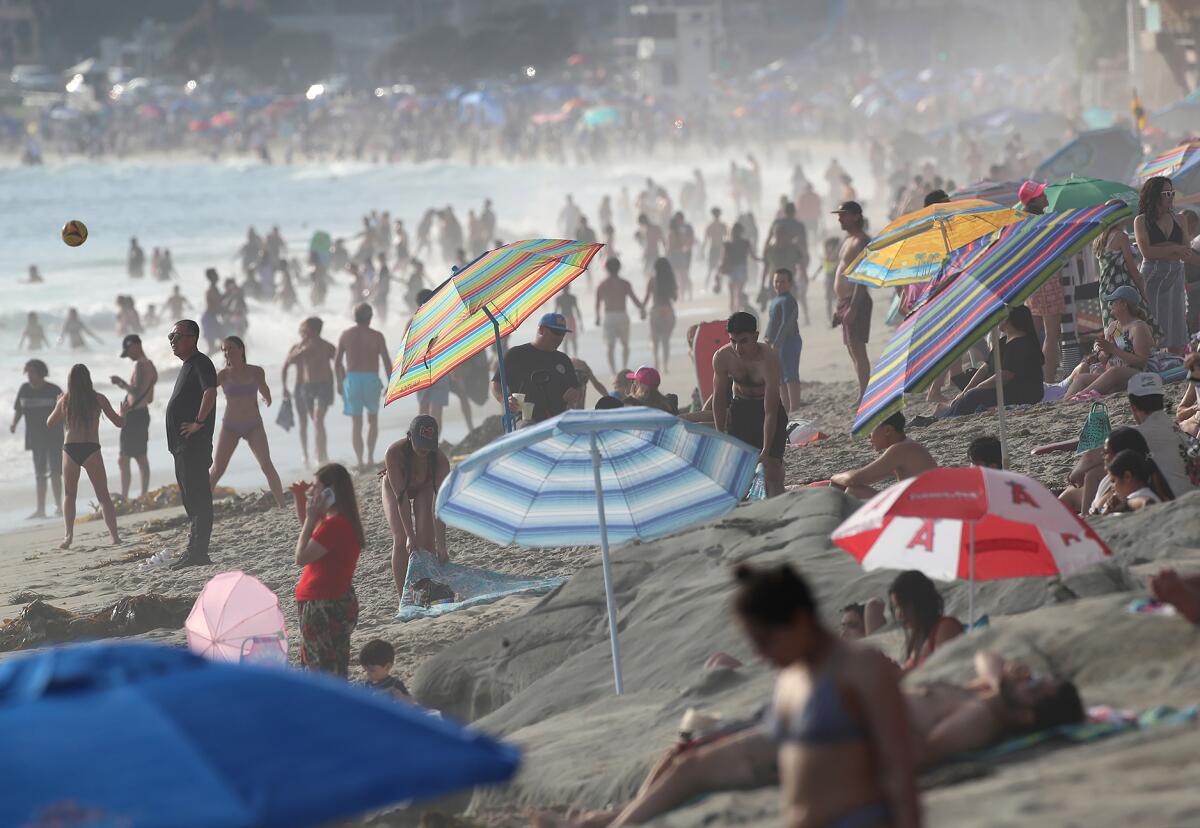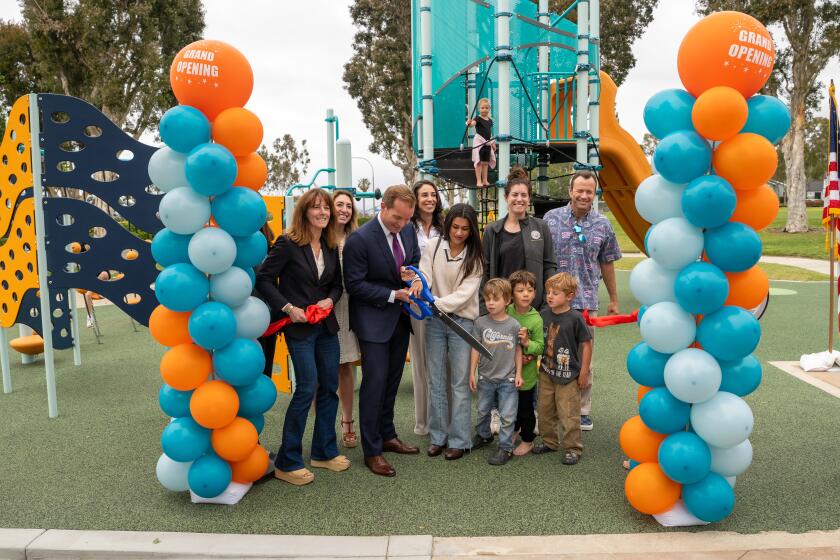Laguna won’t send hotel tax increase, business license tax to ballot

- Share via
As Laguna Beach grapples with significant visitor impacts, city officials and community stakeholders have been putting their heads together to consider ways to offset some of the associated costs.
A transient occupancy tax increase and a business license tax were presented to the City Council on Tuesday night, but the panel did not take action on either.
It would have taken a two-thirds vote of the council to submit either tax to the voters in November. City staffers identified Aug. 9 as the deadline to submit ballot text and the city attorney’s impartial analysis.
The proposals included an increase from 12% to 13% for the transient occupancy tax, also known as a hotel bed tax. A staff report indicated a 1% increase could result in $1.75 million in additional revenue in the first year, but there were concerns about keeping hotels competitive.
As for the business license tax, city staff said the structure of such taxes had not been substantially altered since 1996. A town hall meeting on July 11 revealed community interest in focusing on the bars and restaurants to bring in more money from tourists.
The items were effectively abandoned as discussion led to insufficient support for either tax among the five-person governing body.
The City Council is not scheduled to meet again until Aug. 13, which likely means that the taxes under consideration will not be headed to a ballot until at least November 2026. Such measures can only be voted on during a general election.
Additional costs to residents deterred some members of the council from supporting the business license tax.
“We’re trying to recoup money for us from the visitors, and if you’re also going to tax the residents, then you’re really taxing the residents for visitor problems, and that’s something we’re trying to get away from,” Mayor Sue Kempf said. “This is one of the things that’s perplexing to me, [that] we don’t have a very easy way to collect a lot of money.”
Councilman Bob Whalen had hoped to send the business license tax to the voters, adding that the city needs to keep its options open in terms of generating revenue.
“We’re in the midst of doing this facilities master plan that’s going to come back with an enormous number for facilities needs,” Whalen said. “We’ve heard from the community they want us to ramp up enforcement. That’s going to cost money [for] the personnel to enforce this. I think it would be a mistake for council to say increasing parking revenues is the only vehicle we should be pursuing in order to get more fees out of visitors.”
In lieu of taking action on the proposed resolutions, the council decided to continue the approach of public education. An ad hoc committee consisting of Councilman Mark Orgill and Whalen will continue to explore options to address financial challenges faced by the city as it looks to maintain services, while also investing in emergency preparedness, public safety programs and infrastructure improvements.
The ad hoc committee was formed on Feb. 27, as the appointed council members worked with staff on a survey to determine if residents would support an increase in sales, hotel or business license taxes.
Orgill saw further education and town hall meetings as a vehicle to gain potential support for a future measure.
“I just think it’s a matter of education,” Orgill said. “I know that this means that this whole idea could be two years off, but I think it would be worth waiting and doing the work, education and bringing the community and then letting them have a voice in the whole effort.
“I think it’s important to understand that at the end of the day, you want success, right? So, if this goes on the ballot, you want it to pass.”
All the latest on Orange County from Orange County.
Get our free TimesOC newsletter.
You may occasionally receive promotional content from the Daily Pilot.




